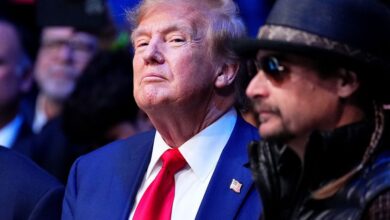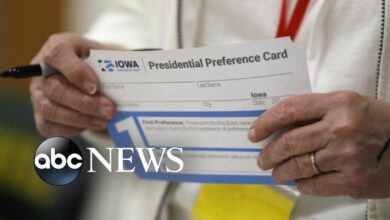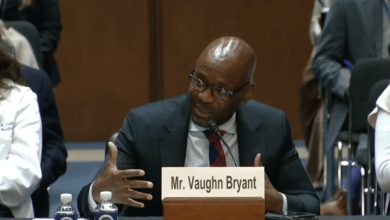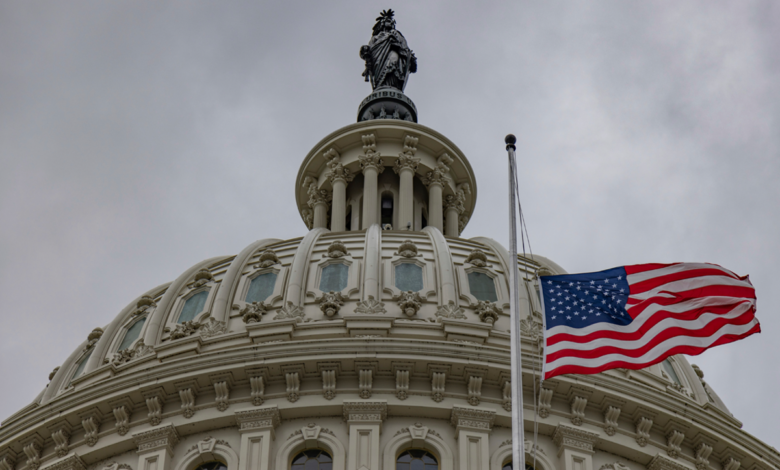
Election Deniers Seek to Voting Legislation
Election deniers seek to voting legislation, pushing controversial changes to voting procedures across the nation. This movement, fueled by unsubstantiated claims of election fraud, is reshaping the landscape of American democracy. From proposed restrictions on mail-in voting to stricter voter ID requirements, these legislative efforts are raising significant concerns about voter access and the integrity of our electoral system.
The potential impact on different demographic groups is a crucial element in understanding the implications of these policies.
The article delves into the historical context of election denial movements, examining the evolution of arguments used to challenge election outcomes. It also explores the various legislative responses, highlighting the rationale behind different proposals and potential unintended consequences. Furthermore, the impact on voter access and legal challenges to these measures are thoroughly analyzed. Finally, international perspectives and future trends are considered, providing a comprehensive understanding of this complex issue.
Background on Election Deniers
The phenomenon of election denial, characterized by the assertion of widespread fraud in democratic elections, has emerged as a significant political issue in recent years. This skepticism often transcends the boundaries of reasoned debate and can have profound consequences for democratic processes and societal trust. Understanding the historical context, arguments, and motivations behind these claims is crucial for navigating this complex issue.
Historical Overview of Election Disputes
Disputes over election results have existed throughout history, often fueled by political tensions and differing interpretations of the electoral process. From the contested 1876 U.S. presidential election to more recent controversies, these disputes reflect a recurring struggle for legitimacy and power. The evolution of these disputes has seen a shift in the arguments employed and the scale of the challenges.
Evolution of Arguments
Initially, arguments for election challenges often focused on specific irregularities or alleged fraud in individual voting districts. Over time, these arguments have broadened to encompass broader accusations of systemic fraud and conspiracies. Sophisticated use of social media and digital platforms has enabled the rapid dissemination of these claims, potentially amplifying their impact. The rise of “fake news” and disinformation campaigns has further complicated the landscape, making it harder to discern credible information from misinformation.
Key Figures and Organizations
Numerous individuals and organizations have played a role in propagating election denial narratives. Some individuals have emerged as prominent voices, while others have organized groups to promote these claims. Their motivations range from political gain to a perceived need to protect their communities or beliefs. The motivations are complex and often intertwined.
Motivations Behind Election Denial, Election deniers seek to voting legislation
The motivations behind election denial narratives are diverse and multifaceted. These motivations may include partisan political gain, a desire to undermine public trust in democratic institutions, or a belief that the integrity of the election has been compromised. These beliefs are often intertwined with broader societal and cultural anxieties.
Examples of Legal Challenges
Numerous legal challenges to election results have been launched across various countries. The outcomes of these challenges have varied significantly, with some being dismissed as lacking sufficient evidence while others have had a limited impact on the election results. Understanding these examples and their outcomes provides insight into the challenges and limitations of such legal actions. Here’s a table summarizing some notable cases:
| Date | Country | Key Figures | Arguments | Outcome |
|---|---|---|---|---|
| 2020 | United States | Donald Trump | Allegations of widespread voter fraud | Dismissed in numerous courts |
| 2022 | Brazil | Bolsonaro Supporters | Claims of irregularities in election | Dismissed in court |
| 2022 | United States | Various Republican Officials | Claims of irregularities in specific election | Dismissed in court |
| 2023 | Philippines | Opposition Groups | Allegations of irregularities in election | Dismissed in court |
Legislative Responses to Election Deniers
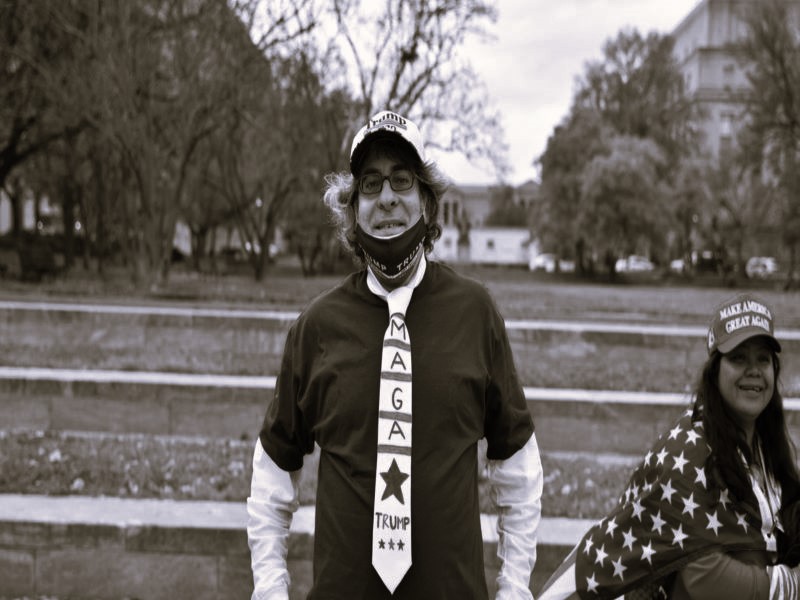
The rise of election denialism has spurred a wave of legislative responses across various jurisdictions. These efforts aim to bolster public trust in the integrity of the electoral process, address the spread of misinformation, and ensure fair and accessible elections for all citizens. This proactive approach reflects a growing recognition of the threat that unsubstantiated claims pose to democratic institutions.These legislative responses vary significantly in their scope and approach, often reflecting the unique political landscapes and historical contexts of different states.
Some focus on strengthening election administration, while others prioritize measures to combat misinformation. This dynamic response underscores the multifaceted nature of the challenge and the need for tailored solutions to address specific concerns.
Election deniers pushing for restrictive voting laws are clearly a concerning trend. While the recent Disney World allergy death lawsuit highlights the serious need for stricter regulations regarding safety protocols, it’s crucial to remember that these unrelated incidents shouldn’t overshadow the fundamental right to vote. These voting restrictions are undermining democratic processes, and we need to ensure fair and accessible elections for everyone.
The issues surrounding the disney world allergy death lawsuit highlight the importance of careful scrutiny of safety measures, but should not distract from the importance of voting rights. Ultimately, the focus must return to ensuring that everyone has the ability to exercise their right to vote without unnecessary barriers.
Types of Voting Legislation
Various types of voting legislation are being introduced or enacted to counter the effects of election denial efforts. These measures encompass a range of strategies, from strengthening election administration to combating the spread of misinformation. The focus on these diverse approaches underscores the complexity of the issue and the need for comprehensive solutions.
- Strengthening Election Administration: Legislation is frequently introduced to enhance the capacity and resources of election officials. This includes provisions for increased staffing, training, and funding for election administration, as well as the development of clear protocols for election audits and recounts. This often aims to provide a more robust and transparent system that can withstand challenges to its legitimacy.
- Combating Misinformation: Several jurisdictions are considering measures to address the spread of false or misleading information regarding elections. This may involve enhanced penalties for spreading misinformation, establishing fact-checking initiatives, or requiring social media platforms to remove or label false information about election procedures. The aim is to create a more informed electorate and combat the corrosive effects of disinformation.
- Improving Voter Access and Security: Some legislation focuses on improving voter access and security measures. This can involve expanding early voting opportunities, enhancing voter registration processes, and ensuring secure voting equipment and procedures. The goal is to create an environment where voters feel confident in their ability to cast a ballot and trust the integrity of the process.
Rationale Behind Legislative Proposals
The rationale behind these legislative proposals varies depending on the specific concerns and challenges faced by different jurisdictions. These rationales often involve a combination of factors, including historical context, political climate, and perceived threats to democratic institutions.
- Protecting the Integrity of Elections: Many jurisdictions believe that the introduction of these legislative proposals is crucial to ensuring the integrity of the election process. This often involves a commitment to accurate information and transparency in the election process.
- Addressing Misinformation and Disinformation: The spread of misinformation and disinformation surrounding election procedures is a significant concern. Legislators aim to mitigate the impact of this information on public trust and the integrity of elections.
- Ensuring Voter Confidence: Many believe that voters need to feel confident that their votes will be counted accurately and securely. This often motivates legislative measures designed to improve transparency and voter access.
Specific Provisions of These Laws
The specific provisions of these laws vary widely, depending on the particular needs and concerns of each jurisdiction. These provisions reflect the unique context of each state or locality.
| Jurisdiction | Type of Legislation | Key Provisions | Rationale | Potential Concerns |
|---|---|---|---|---|
| State A | Election Security Act | Increased funding for election administration, standardized audit procedures, enhanced voter registration security. | To improve election administration and deter fraud. | Potential for increased costs, concerns about overreach in regulating elections. |
| State B | Misinformation Accountability Act | Penalties for knowingly spreading false information about election procedures, requirements for fact-checking initiatives. | To combat the spread of misinformation. | Potential for chilling effect on free speech, concerns about defining “false” information. |
| State C | Voter Access Enhancement Act | Expanded early voting options, online voter registration, improved accessibility for voters with disabilities. | To increase voter participation and ensure accessibility. | Potential for logistical challenges, concerns about voter fraud. |
Potential Unintended Consequences of These Laws
While these legislative responses aim to strengthen elections, some potential unintended consequences must be considered. These potential consequences can vary widely depending on the specifics of each law.
- Potential for Increased Costs: Some measures, like enhanced security or expanded early voting options, could lead to increased costs for states. This is a critical consideration in budget-constrained environments.
- Chilling Effect on Free Speech: Legislation designed to combat misinformation could inadvertently create a chilling effect on free speech, particularly for those expressing views that are critical of election procedures.
- Administrative Burden: Implementing new laws can lead to an administrative burden for election officials, potentially requiring additional training, resources, and time to implement new protocols and procedures.
Comparison and Contrast of Approaches
The approaches taken by different jurisdictions vary significantly, reflecting diverse political and social contexts. Some jurisdictions focus on strengthening election administration, while others emphasize combating misinformation or improving voter access.
- Jurisdictional Variations: The differences in approach can be attributed to a variety of factors, including the specific political landscape, historical context, and perceived threats to election integrity.
Impact of Legislation on Voter Access
Proposed voting legislation, often driven by concerns about election integrity, can significantly impact voter turnout and participation. These measures, while intended to enhance security, may inadvertently create barriers to voting, disproportionately affecting certain demographic groups and potentially altering the landscape of election administration. Analyzing these potential effects is crucial for understanding the broader implications of such legislation.
Election deniers are pushing for restrictive voting legislation, aiming to limit access for various reasons. Meanwhile, the St. Louis Blues are reportedly showing interest in trading for Pavel Buchnevich, which is quite a hot topic. This is all a distraction from the real issue, which is that election deniers are working to make voting more difficult and undermine the democratic process.
blues pavel buchnevich trade interest
Potential Impact on Voter Turnout and Participation
The introduction of new voting laws can have a substantial impact on voter turnout. Stricter identification requirements, reduced early voting periods, or limitations on mail-in ballots can deter eligible voters from participating in the election process. For example, if a law requires a specific form of photo ID, voters without that ID may be unable to vote. Similarly, shortened early voting windows or reduced availability of polling places can make it harder for voters with conflicting schedules or geographical limitations to cast their ballot.
These factors, compounded by potential misinformation campaigns about the new laws, can lead to decreased voter participation, especially among vulnerable populations.
Potential Barriers to Voting Created by New Laws
Numerous barriers to voting can be introduced through legislative changes. These can range from burdensome registration processes to restrictions on ballot access. For example, implementing stricter voter ID laws may disproportionately impact minority communities or low-income individuals who may not have access to the required documentation. Likewise, limiting the availability of early voting or absentee ballot options can restrict access for voters with scheduling conflicts or disabilities.
These measures, while potentially aimed at improving election security, can inadvertently create substantial barriers to voting for many citizens.
Impact on Different Demographic Groups
The impact of these legislative changes is not uniform across all demographic groups. Certain groups, such as minority voters, low-income individuals, and senior citizens, may face disproportionate barriers to voting. For instance, strict voter ID laws may disproportionately affect minority communities who may not possess the required documentation. Likewise, limitations on mail-in ballots or reduced early voting periods can disproportionately affect individuals with childcare responsibilities or those with mobility limitations.
Impact on Election Administration
Implementing new voting laws can place considerable strain on election administrators. Increased requirements for voter identification, expanded auditing procedures, or restrictions on ballot counting methods can all lead to logistical challenges and increased costs. The burden on election officials to manage the added complexity of these new rules can lead to increased processing time, potential staffing shortages, and potential errors in the administration of elections.
Balancing Election Security with Voter Access
Balancing election security with voter access is a complex challenge. Legislators must carefully consider the potential for both voter suppression and ensuring the integrity of the electoral process. The focus should be on evidence-based solutions that address legitimate concerns about election security without creating unnecessary barriers to voting. It’s essential to remember that robust voter access is a cornerstone of a healthy democracy.
The challenge lies in identifying and implementing effective measures to enhance security without undermining the fundamental right to vote.
Table: Impact of Legislation on Voter Access
| Legislation | Demographic Group | Potential Impact | Explanation |
|---|---|---|---|
| Strict Voter ID Laws | Minority Voters, Low-Income Individuals | Reduced Voter Turnout | Lack of access to required documentation can create a significant barrier to voting, disproportionately impacting vulnerable populations. |
| Limited Early Voting | Working Individuals, Individuals with Disabilities | Reduced Voter Turnout | Inability to vote during designated periods due to work or other constraints can impact voter participation. |
| Restrictions on Mail-in Ballots | Senior Citizens, Individuals with Disabilities | Reduced Voter Turnout | Limiting the use of mail-in ballots can restrict access for voters who rely on this method for logistical or health reasons. |
Legal Challenges to Voting Legislation: Election Deniers Seek To Voting Legislation
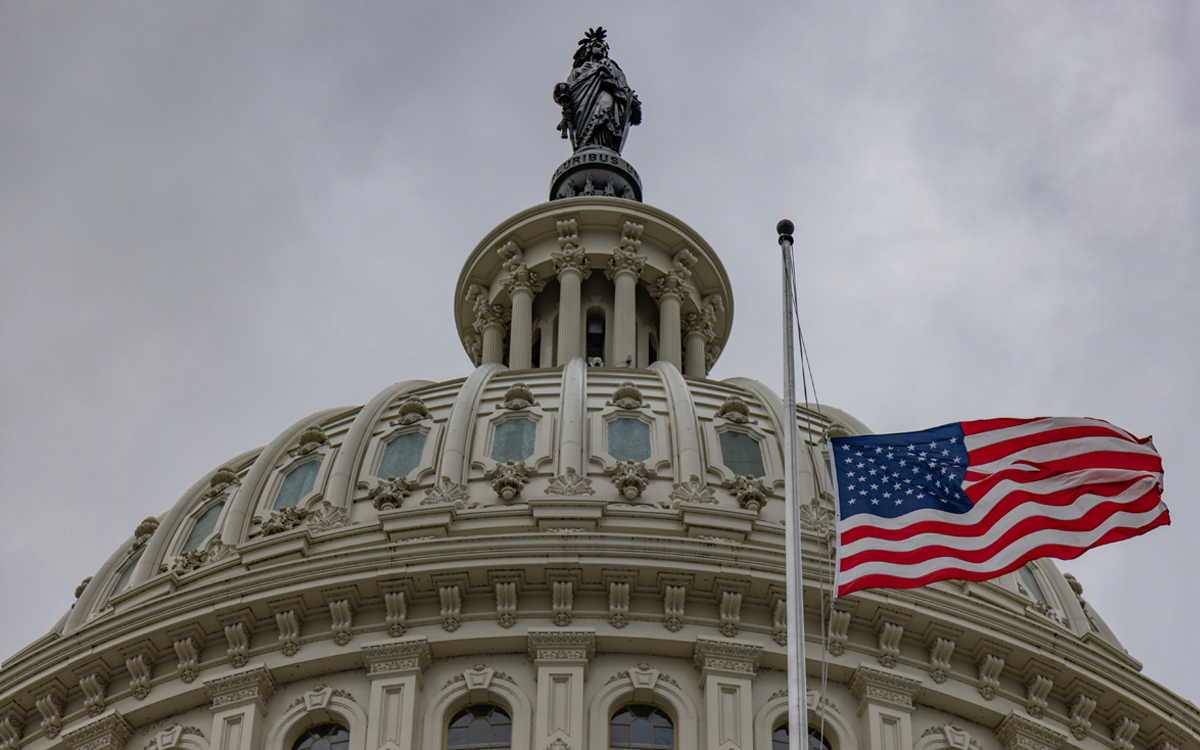
The recent surge in proposed voting restrictions has ignited a firestorm of legal challenges. These challenges are crucial in determining the constitutionality and fairness of these measures, often involving complex legal arguments regarding equal protection, free speech, and the right to vote. The legal landscape surrounding voting rights is constantly evolving, and these cases promise to shape the future of elections for years to come.These legal battles are not just academic exercises; they have real-world implications for voter access and participation.
The outcome of these cases will determine whether proposed restrictions effectively limit voting rights or whether they violate established legal principles.
Arguments Against the Legislation
Opponents of new voting restrictions frequently raise concerns about potential discriminatory impacts. They argue that these laws disproportionately affect minority voters, low-income individuals, and other marginalized groups.
“These laws create unnecessary obstacles to voting, disproportionately impacting communities of color and low-income individuals who may have limited access to transportation or other resources.”
A statement from a civil rights organization.
“The burden of proof rests on the state to demonstrate that the restrictions are narrowly tailored to serve a compelling government interest and do not unnecessarily burden eligible voters.”
Election deniers pushing for stricter voting laws are raising eyebrows, especially considering the recent focus on accountability in other areas. The tragic armorer Alec Baldwin’s role in the Rust shooting, as detailed in armorer alec baldwin rust shooting , highlights the importance of responsible oversight and the potential for unintended consequences. These actions seem to distract from the real issues surrounding voter suppression and the integrity of our democratic process.
The debate around election integrity needs to be focused on factual evidence, not sensationalism.
A legal expert.
These arguments often cite historical precedents where similar restrictions were deemed unconstitutional. The focus is on the potential for unequal application and the need for the legislation to be demonstrably necessary to achieve a specific government interest, rather than simply restricting access to the ballot box.
Election deniers are pushing for stricter voting laws, which is a concerning development. Meanwhile, the tragic NYC subway shooting on the D train, as reported by CNN , highlights the urgent need for addressing safety concerns. While the focus on voting legislation is important, it shouldn’t overshadow other critical issues facing our communities, like ensuring public safety on our transit systems.
This incident, and the broader debate surrounding voting rights, underscores the need for a balanced approach to addressing these complex issues.
Legal Precedents
Numerous legal precedents exist that could either support or challenge the new voting laws. Cases involving voter ID laws, poll closures, and other restrictions on access to the polls have shaped the current understanding of voting rights.
- Crawford v. Marion County Election Board (2008): This case established a precedent for voter ID laws, but the specifics of the ruling often form a crucial basis for arguing that the current proposals are too broad or lack the necessary justification.
- Shelby County v. Holder (2013): This case significantly altered the landscape of voting rights by striking down a key provision of the Voting Rights Act. Opponents may cite this ruling to argue that the current laws are permissible, while proponents may argue it doesn’t apply to the specific issues at hand.
These precedents are analyzed meticulously to determine whether the current restrictions align with constitutional principles of equal protection and the right to vote. The courts must carefully weigh the potential impact on voter participation against any legitimate government interests.
Election deniers are pushing for restrictive voting legislation, which is frankly concerning. Meanwhile, contract negotiations for the Chiefs’ star player, Andy Reid, are also making headlines. This distraction from crucial voting rights legislation, like the issues surrounding Andy Reid Chiefs contract negotiations , highlights the need for vigilance in the face of these attempts to undermine our democratic process.
It’s time to focus on protecting our voting rights.
Potential Impact of Legal Challenges
The outcome of legal challenges will significantly impact the implementation of these new voting laws. A successful challenge could result in the law being declared unconstitutional, potentially nullifying its effect. Conversely, a ruling in favor of the legislation could allow the laws to go into effect.
“The potential impact of a legal challenge could range from minor adjustments to the implementation of the law to a complete overhaul or even a cessation of its enforcement.”
A legal analyst.
The impact could also be felt at a local level. For instance, if a challenge succeeds in one state, it might encourage similar challenges in other states with similar legislation.
Role of Courts in Addressing Disputes
Courts play a critical role in resolving disputes over voting legislation. They act as impartial arbiters, weighing the arguments presented by both sides and applying relevant legal precedents.
“The courts are tasked with interpreting the Constitution and determining whether the proposed legislation is consistent with the rights and protections afforded to citizens.”
A legal scholar.
The process typically involves a plaintiff challenging the constitutionality of the law, presenting evidence and arguments, and the court evaluating the merits of the case and rendering a decision.
Arguments Used by Opponents
Opponents of the new voting laws often raise the following arguments:
- Discriminatory Impact: These laws are designed to restrict the ability of specific groups to vote, such as minority voters or voters from certain socioeconomic backgrounds.
- Lack of Necessary Justification: The proposed restrictions do not sufficiently demonstrate a compelling state interest or provide evidence of voter fraud to justify such extensive limitations on access to the polls.
- Violation of Equal Protection Clause: The laws disproportionately burden certain groups and violate the principle of equal protection under the law.
These arguments are carefully constructed to align with existing legal precedents and demonstrate how the proposed legislation undermines fundamental voting rights.
International Perspectives on Election Deniers and Voting Legislation
Examining how other nations have addressed similar challenges related to election denial and voting rights provides valuable insights. Understanding diverse approaches and their outcomes can inform strategies to combat this threat effectively. International experiences offer a lens through which to analyze the nuances of the issue, helping to develop robust and resilient systems.
Global Approaches to Election Integrity
Different countries have employed various strategies to safeguard their electoral processes. Some focus on strengthening legal frameworks, while others prioritize public education and awareness campaigns. This diversity of approaches highlights the multifaceted nature of the challenge and the need for tailored solutions.
Comparative Analysis of National Strategies
| Country | Approach | Success Factors | Challenges |
|---|---|---|---|
| Canada | Focuses on robust electoral laws and independent oversight bodies. Public education campaigns aim to combat misinformation. | Strong legal framework, established institutions, and broad public support for democratic processes. | Maintaining public trust in the face of evolving disinformation strategies. |
| Germany | Utilizes strict laws against defamation and incitement of violence. Emphasis on media literacy programs. | Long-standing tradition of democratic institutions, a robust legal framework, and a culture of media literacy. | Adapting to new forms of online disinformation and misinformation. |
| Australia | Combines strong electoral laws with a focus on media literacy and fact-checking initiatives. | Independent electoral commissions and comprehensive legal frameworks. | The need for ongoing adaptation to evolving disinformation tactics. |
| United Kingdom | Emphasizes independent electoral authorities, strict campaign finance regulations, and robust legal frameworks. Increased emphasis on online disinformation. | Well-established democratic traditions and institutions. | Ensuring that legal frameworks keep pace with the rapid evolution of online disinformation. |
Lessons Learned from Other Countries
International experiences demonstrate that robust legal frameworks, independent oversight bodies, and public education campaigns are essential to combatting election denial. Successful strategies often involve a multi-pronged approach, integrating legal, educational, and technological measures. A critical lesson is the need for constant adaptation to new forms of disinformation.
Examples of Successful Strategies
Many countries have successfully countered election denial by implementing measures that bolster public trust in the electoral process. These include strengthening legal frameworks to combat disinformation, educating the public about the electoral system, and promoting media literacy programs. Independent oversight bodies also play a crucial role in maintaining credibility and transparency. For example, Australia’s independent electoral commission plays a critical role in fostering trust and transparency.
Future Trends and Predictions
The rise of election denialism poses a significant threat to democratic processes. Understanding potential future trends and the strategies employed by those seeking to undermine faith in elections is crucial for proactive measures to safeguard the integrity of our systems. This includes anticipating emerging technologies and tactics designed to manipulate election results and responding effectively.The ongoing evolution of misinformation campaigns, the use of sophisticated digital tools, and the targeting of specific demographics are likely to intensify.
This will require a multifaceted approach to address these threats, combining legal reforms, public education initiatives, and technological advancements to combat disinformation and safeguard the integrity of the electoral process.
Potential Future Trends in Election Denial Movements
The election denial movement is likely to adapt and evolve, potentially shifting its tactics and targets. One trend is the increased use of social media and online platforms to spread misinformation and disinformation, leveraging algorithms and echo chambers to amplify false narratives. Another possibility is the formation of localized, community-based groups, fostering a sense of shared grievance and distrust in established institutions.
Legislative Responses to Future Trends
Legislatures will likely respond to these evolving trends with new or strengthened laws designed to combat election denial and protect the integrity of elections. These measures may include stricter regulations on the spread of misinformation, increased funding for election administration, and expanded access to voter education programs. Examples of legislative responses include enhanced penalties for election fraud and requiring more transparency in campaign finance reporting.
Impact of Future Trends on Elections and Voting Practices
The impact of these trends on elections and voting practices could be substantial. Erosion of public trust in elections could lead to lower voter turnout, reduced civic engagement, and increased political polarization. Furthermore, the spread of misinformation and the use of disinformation campaigns could undermine the integrity of the electoral process, potentially leading to disputes over election results and disruptions to democratic governance.
Consider the 2020 US Presidential election and the subsequent challenges to the results, and the impact on voter confidence.
Emerging Strategies and Technologies for Election Manipulation
Future election manipulation strategies may involve more sophisticated techniques. One potential tactic is the use of deepfakes to create fabricated videos or audio recordings of political figures, which could be used to spread false information. Another strategy may involve the use of advanced data analytics to identify vulnerable voters and target them with tailored misinformation campaigns.
Possible Outcomes and Consequences of These Trends
The consequences of these trends for democracy and democratic processes could be severe. Decreased voter turnout, reduced civic engagement, and increasing political polarization could lead to a weakened democratic system, potentially making it more susceptible to authoritarian influence. The spread of disinformation and manipulation could lead to public distrust in government institutions and undermine the legitimacy of elections.
Examples include the 2016 US presidential election and the Brexit vote, where social media was used to spread disinformation and manipulate public opinion. The consequences of these trends could be significant and far-reaching, impacting not only elections but also broader societal stability.
Conclusive Thoughts
In conclusion, the push by election deniers to reshape voting legislation presents a significant threat to democratic processes. The proposed changes, while often framed as measures to enhance election security, raise serious concerns about voter access and the potential for disenfranchisement. A balanced approach is crucial, one that prioritizes both election integrity and the fundamental right to vote.
The legal and political battles ahead promise to be intense, with far-reaching consequences for the future of elections in the United States.
Top FAQs
What are some common arguments used to justify restrictive voting legislation?
Proponents often cite concerns about election fraud, though evidence supporting these claims is typically weak or nonexistent. Other arguments include the need for increased security measures and voter verification processes.
How might these laws disproportionately affect specific demographics?
Certain groups, like minority voters or those with limited access to transportation or technology, may face greater barriers to voting if stricter requirements are put in place. These laws could have a significant impact on voter turnout, particularly within these demographics.
What role do courts play in addressing disputes over voting legislation?
Courts are crucial in adjudicating legal challenges to these laws, interpreting their constitutionality and impact on voting rights. Previous court decisions regarding voting rights will serve as important precedents.
What are some examples of successful strategies to combat election denial efforts?
Successful campaigns often rely on educating the public about the lack of evidence supporting election fraud claims and promoting the importance of fair and accessible elections.


